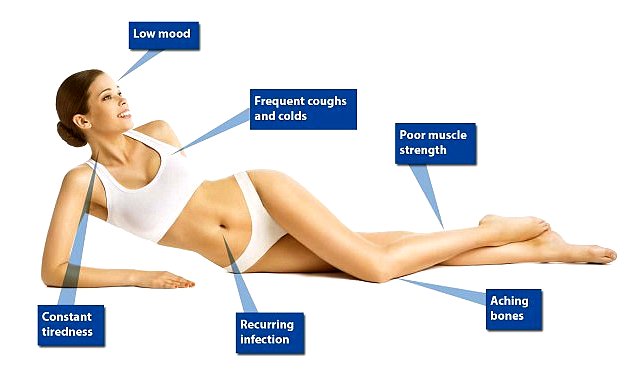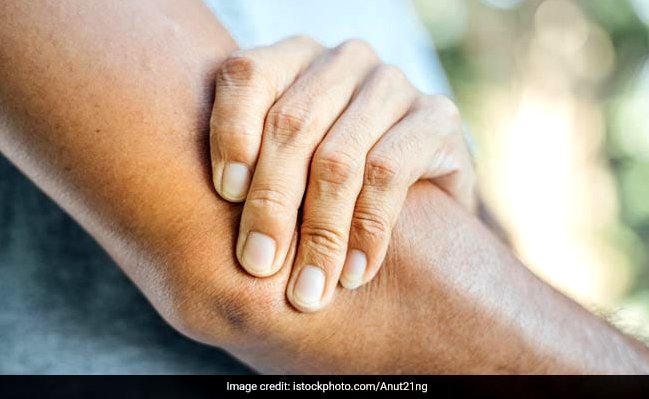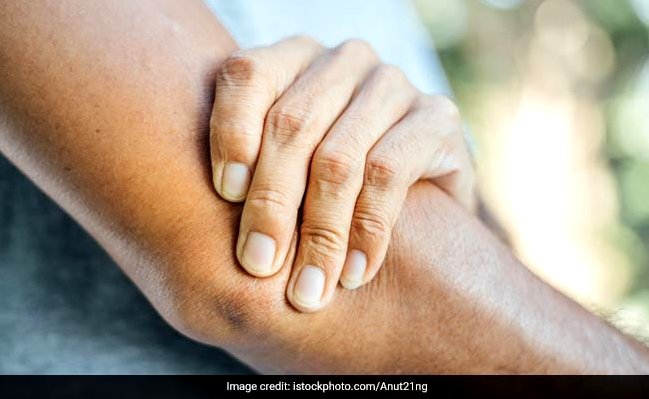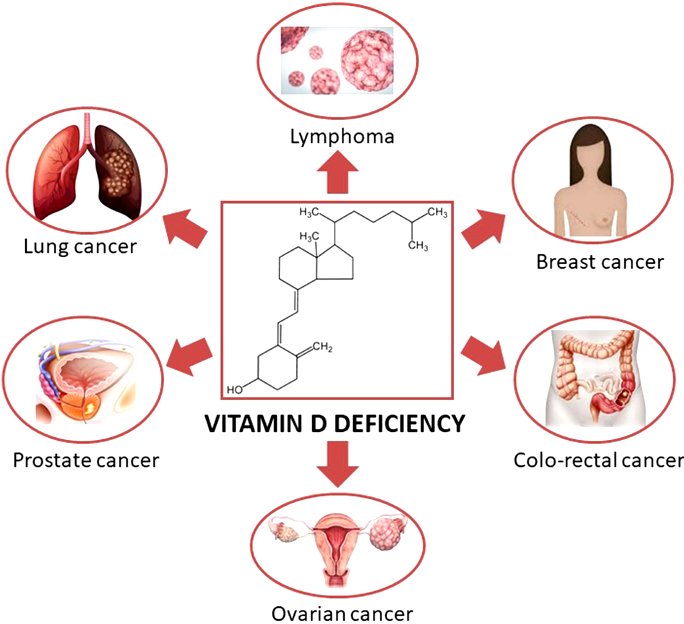Vitamin D is an indispensable nutrient essential to good health. This multifaceted nutrient helps with calcium absorption, immune support and supporting healthy bone development, among many other things - making its importance paramount in maintaining good wellbeing. Unfortunately, however, vitamin D deficiency has become an epidemic across the globe with studies uncovering startling evidence that nearly one billion individuals worldwide may be grappling with its detrimental consequences.
Vitamin D deficiency has serious repercussions, from its impact on mood to crushing fatigue; its symptoms can manifest in unexpected ways that seem entirely unconnected with its deficiency. Yet it is essential to realize that vitamin D deficiency may be an underlying cause of various conditions that could prove debilitating if left unchecked; from weak muscle tone and mood disturbances to crushing fatigue, its consequences span across an array of health concerns that arise as a result of its absence.
This discourse aims to explore in-depth 14 signs and symptoms of vitamin D deficiency as well as methods for recognizing them, along with treatment options to manage this condition effectively. Furthermore, we will present practical and actionable tips on preventing vitamin D deficiency that readers can implement immediately to safeguard their health and stave off its detrimental effects on well-being. Let us get started!
I. Symptoms of Vitamin D Deficiency
Vitamin D is essential to strong bones, muscles and overall good health. Without enough of this essential nutrient in your system, health issues could arise that lead to significant problems. Here we explore 14 signs of vitamin D deficiency. By learning these indicators of deficiency you'll be able to recognize them both in yourself or others so you can formulate a plan to address the situation more efficiently.
Are You Feeling Tired and Run Down? That could be a Sign of Vitamin D Deficiency
Are You Suffering From Bone Pain or Fractures? Vitamin D could be the key to optimal bone health; its absorption helps ensure your muscles can perform at their best and you reduce risk for falls and injuries. Low levels have even been linked to hair loss - although genetics still play an integral part here!
Vitamin D deficiency can impair immune function, making wounds take longer to heal or chronic pain more likely, so it's crucial that low levels of the vitamin aren't the cause. Studies show that not having enough can also result in poor sleep quality, respiratory issues, mood swings and cognitive impairment as well as contributing to an increased risk of cardiovascular disease! Furthermore, an absence of Vitamin D increases cardiovascular disease risks!
Note that if any of these symptoms seem concerning, it is crucial that they are addressed with your healthcare provider immediately. They can conduct a blood test to establish your vitamin D levels and offer recommendations to boost them.
Learn more at health.unl.edu about Symptoms of Vitamin D Deficiency.II. Symptoms of Vitamin D Deficiency
Are You Struggling with Vitamin D Deficiency? Take Heart! Treatment Options Await Us. In this section, we'll delve into all of these treatment plans in greater depth in order to better explain their advantages and drawbacks.
Sunlight Exposure:
One natural and cost-effective method of increasing vitamin D levels is by basking in sunlight for some time - nothing beats basking under its rays to allow skin cells to produce vitamin D when exposed to ultraviolet B radiation (UVB). However, keep in mind the perils associated with UV radiation by only basking during peak sunlight hours and using sunscreen with at least an SPF30 rating - otherwise risks of UV radiation could emerge and damage occur quickly.
Vitamin D-Rich Edibles:
Another way to increase vitamin D levels is through eating foods rich in this nutrient, such as salmon and tuna which contain significant quantities. Egg yolks, mushrooms, cereals and fortified foods (such as milk) also provide ample amounts of this vital nutrient and can prevent any possible deficiency issues.
Vitamin D supplements:
If natural measures, such as sunlight exposure and diet adjustments, fail to sufficiently increase vitamin D levels, supplementation may be the solution. These come in two varieties - D2 and D3. But it should be noted that D3-the active form of vitamin D-is the optimal way to increase vitamin D levels in your bloodstream. Please consult with your healthcare provider regarding an optimal dosage for vitamin D supplements. Deviating from these recommendations and overdosing on vitamin D may cause harmful consequences, including nausea, vomiting, weakness and possible kidney damage. Most individuals should consume between 600 to 800 IU per day; however this number can change according to age and overall physiological wellbeing.
Treating vitamin D deficiency requires the combination of sunlight exposure, diet changes and potential vitamin D supplement use to achieve healthy vitamin D levels. Please remember that reaching this goal could take several months - therefore be persistent in following the advice of healthcare providers regarding treatments and regimens for treating it.
Keep reading as the next section will elucidate strategies to combat vitamin D deficiency through lifestyle modifications and diet adjustments.
III. Symptoms of Vitamin D Deficiency
Maintaining optimal health is of utmost importance, and vitamin D deficiency cannot be overlooked as one aspect that must be tackled head on. In order to do this effectively, individuals must adopt an holistic approach which includes adopting healthier lifestyle habits and diet changes.
Adopting Healthy Lifestyle Habits
Adopting healthy lifestyle habits to combat vitamin D deficiency is of utmost importance in order to avoid deficiency. This includes regular physical activity, adequate rest and stress-relief techniques such as meditation or yoga. Furthermore, cutting back on smoking and cutting back on alcohol consumption are also vital steps towards reaching this goal.
Consuming Foods High in Vitamin D
Consuming foods high in vitamin D is key to avoiding deficiency, while adding other nutrient-rich items, like vegetables, fruits, whole grains and lean proteins to your diet can provide the foundation needed for optimal health.
Direct Exposure to Sunlight or UV Lamps
Thirdly, direct exposure to sunlight or UV lamps is another effective means of increasing vitamin D levels in one's system. To protect one's skin from damage from prolonged sun exposure during peak daylight hours and wear sunscreen as recommended are important considerations.
Considering Supplements
Fourthly, supplements may be essential to avoiding vitamin D deficiency for some individuals, especially if their sun exposure or diet are limited sources. Supplements should especially be considered when trying to combat vitamin D deficiency.
Note that certain individuals are more vulnerable than others to vitamin D deficiency - for instance those living in northern latitudes with limited sunlight exposure, older adults, or people with darker skin.
Vitamin D plays an integral part in maintaining optimal health; thus, avoiding vitamin D deficiency is of utmost importance. Adopting healthier lifestyle habits and diet modifications may help combat deficiency symptoms; so if any arise, consult your healthcare provider immediately for a solution.
Learn more at Harvard about Vitamin D Deficiency Symptoms.IV. Prevention of Vitamin D Deficiency
With the outbreak of Covid-19, discussions have arisen regarding its possible association with vitamin D. To better comprehend this correlation, evidence will need to be studied carefully; we shall do so here.
Vitamin D Deficiency and Covid-19
Research has repeatedly demonstrated that those deficient in vitamin D are significantly more likely to test positive for Covid-19, require hospitalization, experience critical illness or even die. Given such dire consequences, we must investigate exactly what role Vitamin D plays in our immune systems - without question it plays an essential part in mounting an effective defense against infection (including Covid-19).
The Relationship Between Vitamin D and Covid-19
As is true for most areas of scientific research, our understanding of the intricate relationship between Vitamin D and Covid-19 remains incomplete. Such concerns are especially poignant given that most evidence available is anecdotal in nature and requires further investigation. While Vitamin D offers potential advantages in terms of both prevention and treatment of Covid-19, it should not be seen as a panacea or replace crucial measures like facemasks, social distancing practices or handwashing practices as prevention mechanisms; any attempts at self-supplementation should be discussed with healthcare providers so as to guide patients towards making an informed decision as soon as possible.
Continued Research and Consideration
Simply stated, research into the relationship between Vitamin D and Covid-19 remains intense and ongoing, and demands our constant consideration. While evidence exists of an association between deficient levels of Vitamin D and severity of Covid-19 symptoms and deficiency of sunlight exposure/dietary modifications/supplementation or both and Covid-19 severity - further investigation must take place to firmly establish this correlation. Nonetheless, maintaining adequate levels of Vitamin D through sunlight exposure/dietary modifications/supplementation could provide much-needed immune boost and provide powerful protection from Covid-19.
"Research has repeatedly demonstrated that those deficient in vitamin D are significantly more likely to test positive for Covid-19, require hospitalization, experience critical illness or even die."
- Deficient levels of Vitamin D are associated with severe Covid-19 symptoms
- Further investigation is required to establish this correlation
- Vitamin D should not be seen as a replacement for crucial Covid-19 prevention measures
- Maintaining adequate levels of Vitamin D may provide a boost to the immune system and protect against Covid-19
Conclusion: Vitamin D Deficiency - A Serious Affliction in Need of Attention
Vitamin D deficiency affects millions of people worldwide and requires our immediate attention and consideration. Its impactful realities cannot be overemphasized as this affliction may lead to various complications including bone pain, cognitive impairment, depression, and fractures.
Unmistakable symptoms of vitamin D deficiency should never be ignored, and its timely recognition is key to maintaining sound health. Seeking professional medical advice from a dependable healthcare provider cannot be overemphasized here - taking an accurate blood test and following their advice for treating vitamin D deficiency are the keys to wellness and should always be considered when seeking solutions from specialists.
Remedying vitamin D deficiency usually involves various interventions, including sun exposure, food choices, and supplementation. To reach desired outcomes and ensure consistent outcomes is key. Furthermore, healthcare providers should always advise taking measured steps when considering supplementation of vitamin D levels in the body.
Adopting a healthy lifestyle should be at the top of everyone's priority list when it comes to preventing Vitamin D deficiency. This includes regular physical activity, adequate restful sleep, stress reduction techniques and stress-exclusion methods as well as nutritious food consumption and sufficient sunlight exposure - all which work in concert to maintain adequate vitamin D levels and keep people well.
Emergent research points towards an intriguing link between vitamin D and Covid-19. However, further confirmation through more substantial research work needs to take place for this correlation to become reliable. Nonetheless, healthy levels of vitamin D as achieved through sunlight exposure, diet changes, or supplementation offer numerous advantages for overall health and immune function.
Vitamin D deficiency is an insidious disease with serious consequences if left untreated, but early recognition, treatment, and prevention measures remain key components in ensuring optimal health and well-being for everyone involved. Therefore, we cannot ignore what could otherwise be avoided: Vitamin D Deficiency!




